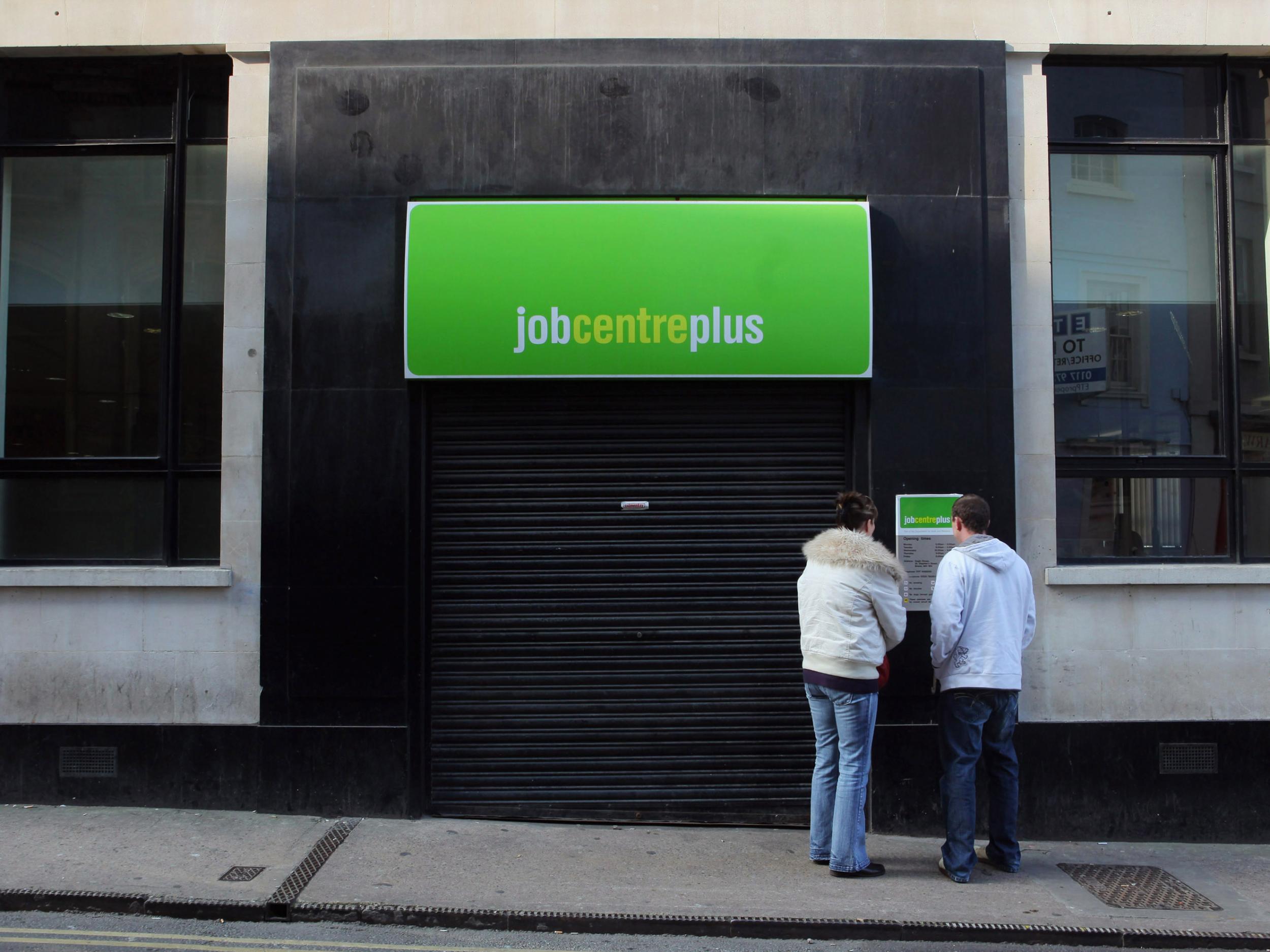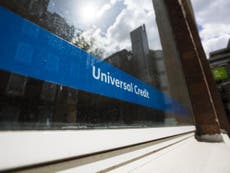‘Flawed algorithm’ used to calculate universal credit forcing people into hunger and debt, watchdog warns
Government’s ‘rigid insistence’ on automating welfare benefit threatening rights of people most at risk of poverty in Britain and causing hardship among those who lack digital skills, finds report

Your support helps us to tell the story
From reproductive rights to climate change to Big Tech, The Independent is on the ground when the story is developing. Whether it's investigating the financials of Elon Musk's pro-Trump PAC or producing our latest documentary, 'The A Word', which shines a light on the American women fighting for reproductive rights, we know how important it is to parse out the facts from the messaging.
At such a critical moment in US history, we need reporters on the ground. Your donation allows us to keep sending journalists to speak to both sides of the story.
The Independent is trusted by Americans across the entire political spectrum. And unlike many other quality news outlets, we choose not to lock Americans out of our reporting and analysis with paywalls. We believe quality journalism should be available to everyone, paid for by those who can afford it.
Your support makes all the difference.A “flawed algorithm” used by the UK government to calculate how much welfare benefit people should receive is forcing claimants into hunger, debt and psychological distress, an international watchdog has warned.
A report by Human Rights Watch (HRW) found that the Department for Work and Pensions’ (DWP) “rigid insistence” on automating universal credit – the new benefit system introduced in 2013 – was threatening the rights of people most at risk of poverty in Britain.
It states that the “predominantly digital” benefit is also causing hardship among people who lack digital skills or cannot afford reliable internet access, as they are unable to apply for and manage their benefit online.
The report accuses the government of breaching international human rights obligations by depriving people of their rights to social security and a decent standard of living, and failing to give those whose rights are violated an effective remedy.
The findings, based on interviews with universal claimants and experts as well as an analysis of case studies and a review of official data and court filings, calls for a “comprehensive redesign" of how the benefit is calculated, particularly in the face of severe income loss and other economic shocks caused by coronavirus.
It found that the means-testing algorithm at the heart of universal credit, which is supposed to adjust how much people are entitled to each month based on changes in their earnings, was “flawed”, with the data used to measure these changes only reflecting the wages people receive within a calendar month, and ignoring how frequently people are paid.
This means that if people receive multiple pay checks in one month – common among people in irregular or low-paid jobs – this can cause the algorithm to overestimate earnings and drastically shrink their payment.
In one case, a 31-year-old father-of-three who had his October 2019 benefit reduced by nearly £600 because of this told researchers: “It’s a big hole I am in at the minute. I’ve worked all my life and I am resorting to using the food bank today because of benefits that I am receiving. It’s not really a benefit is it, if I’m having to use this service?”
It comes as the pandemic has led to a surge in UK residents claiming welfare support, with DWP estimates showing that a record 3.4 million people applied for universal credit during the first three months of the public health crisis.
Concerns are now mounting that 6 million of the UK’s poorest households could suffer a £20-a-week hit to their income, after chancellor Rishi Sunak made clear that he would not extend a temporary boost to universal credit payments introduced for the coronavirus crisis and due to end in March.
The move comes despite the chancellor telling MPs that it was now clear that the impact of Covid-19, which had been expected to be temporary when the welfare boost was implemented, will result in a “permanent adjustment” to the UK economy.
In light of the new report, Amos Toh, senior artificial intelligence and human rights researcher at HRW, said: “The government has put a flawed algorithm in charge of deciding how much money to give people to pay rent and feed their families. Its bid to automate the benefits system – no matter the human cost – is pushing people to the brink of poverty. "
"A human-centred approach to benefits automation will ensure the UK government is helping the people who need it most.”
In June, the Court of Appeal ordered the DWP to rectify the effect the flawed algorithm had on people who receive a regular monthly salary. But while the department accepted the ruling, it is still figuring out how to carry out the orders. The ruling also did not address the plight of people who are paid weekly, fortnightly, or every four weeks.
HRW said that while the government evaluates proposals to fix the algorithm, it should implement “urgently needed” measures such as one-off grants to help people during their five-week wait.
It comes after the former UN special rapporteur on extreme poverty and human rights, Philip Alston, warned last October that governments across the world were automating their key welfare functions without sufficient transparency, due process and accountability.
Responding to the report, Dame Gillian Guy, chief executive of Citizens Advice, said that with the potential for a “fresh avalanche” of job losses this winter, it was “critical” that the government further strengthened the welfare safety net.
"That means turning advance payments into grants to help people weather the five-week wait and ensuring the system can respond flexibly to people’s circumstances,: he added.
A DWP spokesperson said: “Universal credit was designed to mirror the world of work, where the majority of employees receive wages monthly, and to help people get back into employment as soon as possible. The monthly assessment and adjustment period reflects this, and ensures that if a claimant’s income falls, they won’t have to wait several months for a rise in their universal credit.
“Urgent advances are available for those who need them, and we have taken steps to make debt repayments easier.”




Join our commenting forum
Join thought-provoking conversations, follow other Independent readers and see their replies
Comments